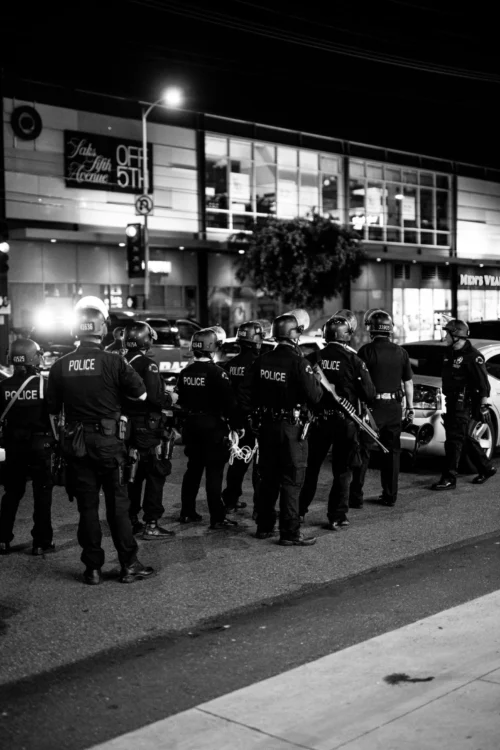Two new studies document effect of police violence on Black Americans’ health
Share
Explore Our Galleries
Breaking News!
Today's news and culture by Black and other reporters in the Black and mainstream media.
Ways to Support ABHM?
By Carla K. Johnson, The Associated Press

The effect of police violence on Black Americans is tracked in two new studies, with one tying police-involved deaths to sleep disturbances and the other finding a racial gap in injuries involving police use of tasers.
The health effects of police violence on Black people “need to be documented as a critical first step to reduce these harms,” three editors of JAMA Internal Medicine wrote in an editorial recently published with the studies.
For the sleep study, researchers looked at responses from more than two million people from 2013 through 2019 in two large government surveys. They focused on people’s reports of sleep in the months following police-involved killings of unarmed Black people.
They found a pattern of sleep disturbances, particularly getting less than six hours of sleep, in Black people — but not among White people — in the six months following a police-involved killing.
[…]
For more prominent police-involved deaths, there was a 11.4 percent increase in reporting very short sleep compared with the average for all Black survey respondents. For deaths, whether prominent or not, that happened in the same state as the survey respondent, the effect was a 6.5 percent increase.
AFRO explains how the research was conducted.
Stay up to date with more black news here.









Comments Are Welcome
Note: We moderate submissions in order to create a space for meaningful dialogue, a space where museum visitors – adults and youth –– can exchange informed, thoughtful, and relevant comments that add value to our exhibits.
Racial slurs, personal attacks, obscenity, profanity, and SHOUTING do not meet the above standard. Such comments are posted in the exhibit Hateful Speech. Commercial promotions, impersonations, and incoherent comments likewise fail to meet our goals, so will not be posted. Submissions longer than 120 words will be shortened.
See our full Comments Policy here.